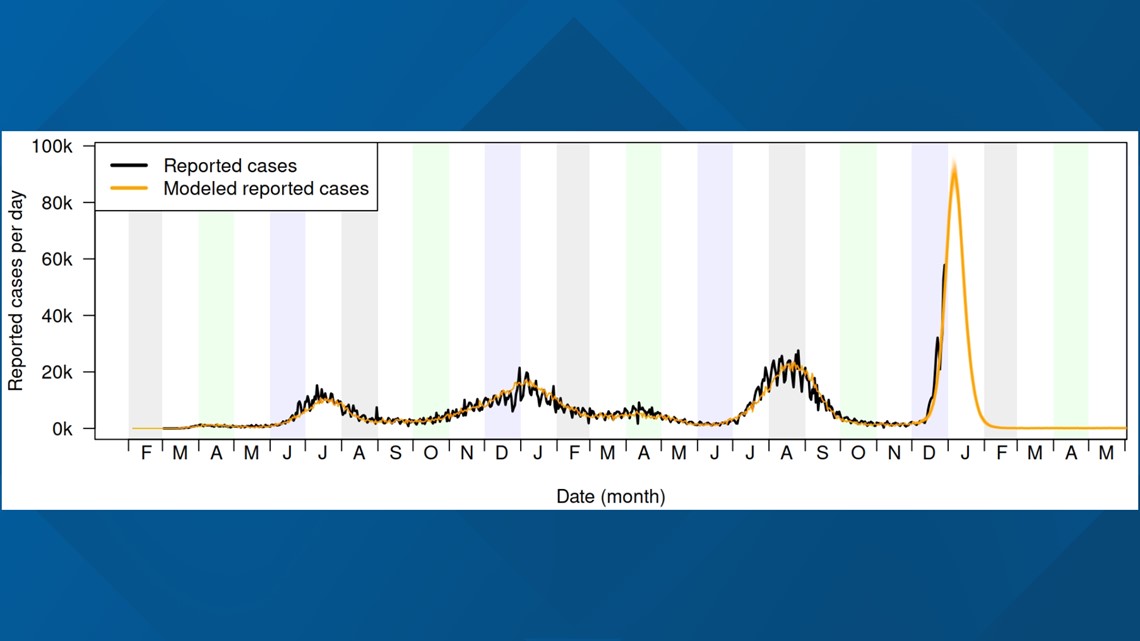GAINESVILLE, Fla. — Biostatisticians from the University of Florida predict that the latest omicron wave will lead to most of the state's population potentially being infected by the virus.
"We find that the omicron wave in Florida is likely to cause many more infections than occurred during the delta wave, potentially infecting most of the state’s population in this wave alone," their Jan. 4 report reads.
That checks out to be about 70 to 80-percent of the state being infected by COVID-19 overall, Ira Longini, professor of biostatistics and co-director of the Center for Statistics and Quantitative Infectious Disease, told WESH.
But, according to the data, omicron infections, while projected to be higher in quantity, are shown to be less severe than those caused by the delta variant — particularly among those who are vaccinated.
"This means that despite causing more infections, it is possible that substantially fewer deaths will result from the omicron wave. We estimate that omicron will cause 1/3 as many deaths as were caused by delta," the report reads.


As of now, experts at UF are also predicting a mid-January peak for the omicron wave.
“It’s good news in the sense that the wave will be over certainly by the end of January,” Longini told WESH. “The bad news, it’s going to be very intense for the next couple weeks with lots of cases and it probably will put a strain on our hospital resources.”
According to the report, absenteeism among infected health care workers paired with the increasing number of COVID-19 patients seeking out hospital systems is creating a strain.
“We may get more variants in the future,” Longini told WESH. “So, I think the more people we can vaccinate and keep vaccinating, especially our children who need to be vaccinated, especially the younger children, to keep doing that. Not [letting] up is going to be very important going forward.”
On Friday, the Centers for Disease Control and Prevention reported Florida saw 76,887 new cases for Jan. 6. That's the most cases reported in a single day since the pandemic began.
In total, the CDC says Florida has reported 4,486,276 cases since March 2020.

